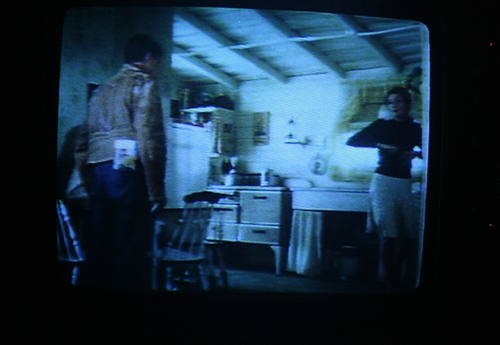The Shining Part 5: Monday, Wednesday
Monday morning, Wendy and Danny watch a movie on TV: Summer of ’42. Summer of ’42, for those unfamiliar with it, is a 1971 coming-of-age movie about a teenage kid who has an affair with an older woman whose husband is away at war. Some people read a lot of significance into the use of this movie in The Shining (some people read a lot of significance into absolutely everything in The Shining) — dwelling on things like Danny wearing a “42” on his shirt, or the fact that 42 is multiple of 12, as is 24, and there are 24 frames per second of film (I wish I was kidding) — but I see it more simply, and more dramatically. Summer of ’42 is a movie about a woman falling in love with a younger man while her husband is away. Now why would Wendy find that movie interesting at this point in her life? Obviously, because her husband has left her, even though they’re living in the same building and sleeping in the same bed, and all she has left is Danny. This is not to say that Wendy has carnal designs on Danny, only that Wendy’s whole life has been built around the romance of marriage and motherhood, and now the marriage part of that seems to be dead now.
(On the the Kubrick-analysis front, honestly, some people get excited about the weirdest things in The Shining and in Kubrick in general . He seems to bring it out in people. I’ve read tons of analysis of Kubrick, analyzing everything from prop placement to frame-counting, everything possible to examine, except the actual drama that’s taking place in the story. Kubrick’s stance invites some of this: his camera always seems to be at a distant remove from his actors, as though looking at them through a telescope, or perhaps a microscope: “Huh, look at that. They find a monolith and then build a spaceship to go find another monolith. And then the computer murders everyone. Interesting.” When the director has a God-like stance toward his characters, and is interested in processes on top of that, people seem to want to find patterns whether or not they’re placed intentionally, and, even if they were placed intentionally, if their intent has any bearing on the meaning of the movie.)
